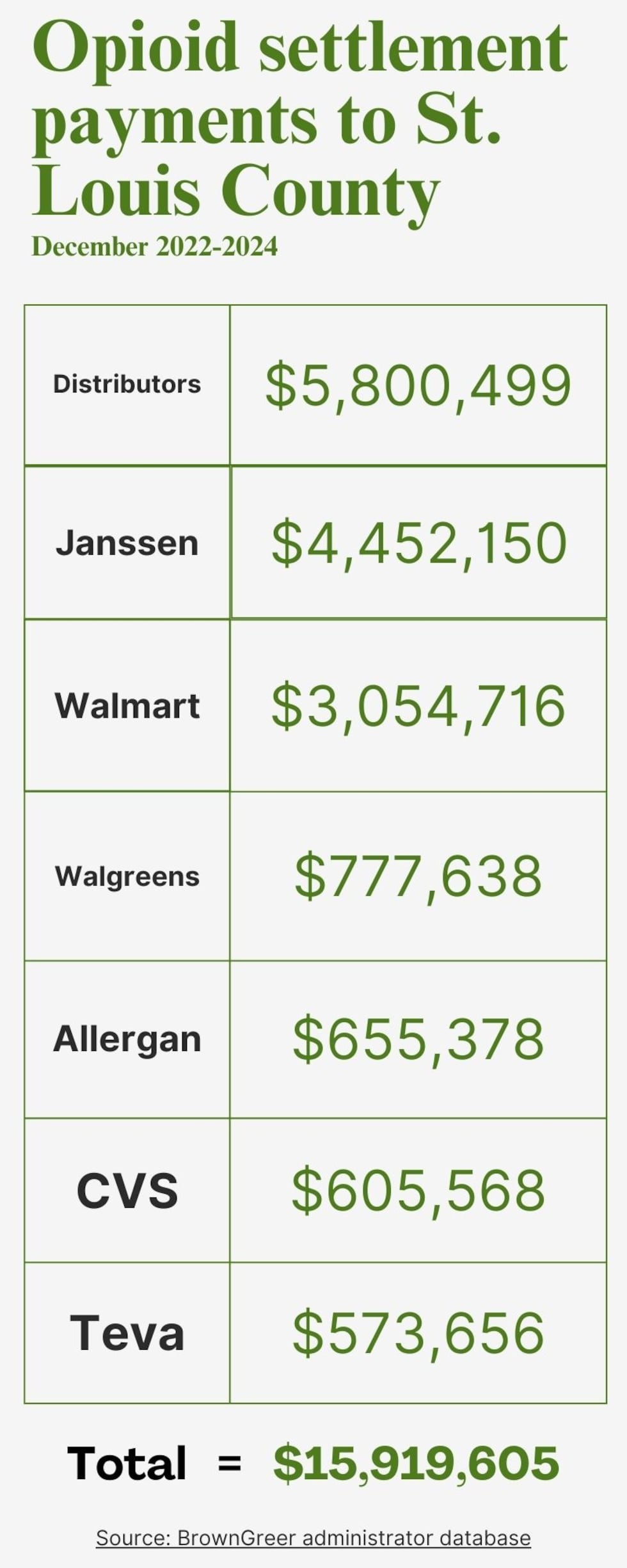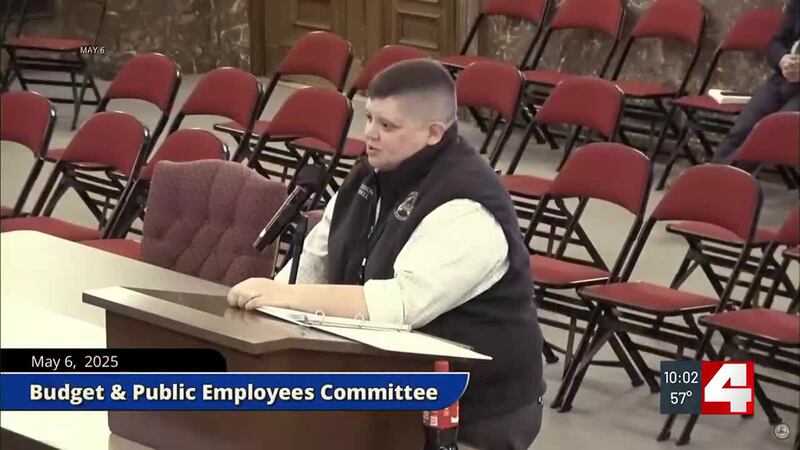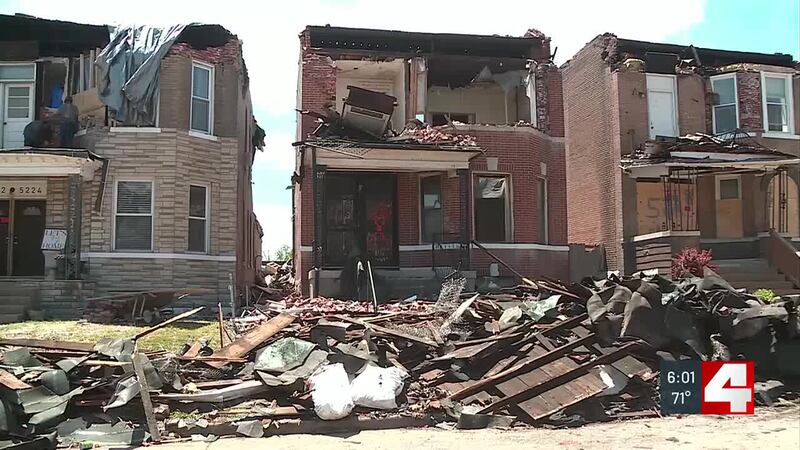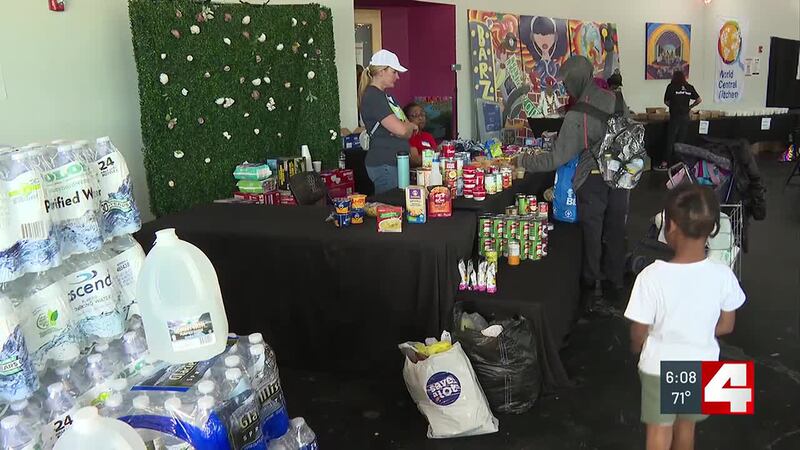St. Louis County has received $16M from opioid settlements but hasn’t used any, records show
Hundreds still dying in the county every year of preventable overdose deaths despite recent progress
ST. LOUIS COUNTY (First Alert 4) -- St. Louis County has not spent or allocated any of the millions in funds received from opioid settlements aimed at remediating the overdose crisis more than two years after the payments began, public records show.
St. Louis County is the largest local government that has not taken concrete action on the funds, with at least $15.9 million received through 2024, according to a database of the funds allocated to local governments nationwide. St. Louis County is projected to get $45 million from the settlements through 2038.
A public records request to the St. Louis County Executive’s Office showed none of the funds had been spent as of January 20, the date the request was sent. First Alert 4 Investigates found through the opioid settlement public dashboard that the county received $15,919,605 through 2024.
St. Louis County Executive Sam Page said the county has been overwhelmed trying to spend federal money that has come in the past two years. He also pointed to the county’s reduced staff as a hurdle.
Part of the county’s budget cuts included a health policy advisor position in the county executive’s office that assisted in creating programs relating to the opioid crisis.
“We did have some budget cuts last year that were difficult, and some of the folks on my staff were victims of the budget cuts,” Page said. “But luckily, a lot of the work that that person did is available and we’re working through it now.”
Page said he believes the county can work with the existing resources at the health department to eventually put the funds to use.
Two local nonprofits and the medical director at a local treatment center offered several needs that could be addressed with additional funding. St. Louis County-based nonprofit PreventEd was one of the organizations the county listed in its 2022 “Substance Use Action Plan” as an area leader in primary prevention of substance use.
Executive Director Jenny Armbruster said county officials have communicated they are working on a plan but have not sent out any information on how to apply for funding.
“Communication on the Opioid Settlement Funds has been limited,” Armbruster said. “We have heard that the County Department of Health is working to develop a plan to address the needs across the continuum, from prevention to recovery, in the county and funding will be allocated to the plan.”
Editor’s note: PreventEd is a featured charity for First Alert 4′s “4YOU” inititiave that helps raise money for local nonprofits.
Another nonprofit, Mission Gate Christian Center, also told First Alert 4 they have not received information on what steps to take to request opioid settlement dollars. Mission Gate has programs to assist people coming out of jails and prisons who need housing, employment, counseling, treatment, and recovery. Nearly every single person that goes through the program has a substance use issue, according to Joyce Fields, who manages a women’s program for the center. They help people all over Missouri, including St. Louis County.

Helping people get their lives back costs money, and Fields said most of the funding comes from private donations. She said a grant could allow the nonprofit to have a larger presence in the community.
“It would help us to be able to open up more doors,” she said. “We would be able to open up new facilities if we were able to get more funding to help more individuals that are needing and wanting that desire to become a productive member of society but not knowing how.”
The drug crisis is personal for Fields. She used to take prescription pills she got cheaply on the street and eventually turned to meth. She went to Mission Gate after coming out of prison in 2018 and wanting to change but not knowing how.
“I feel like I probably would’ve never, ever done it to begin with if it hadn’t been somebody that just had extra ones that were there,” she said.
The opioid settlement lawsuits were based on the overprescribing and marketing of addictive opioids that ramped up the drug overdose crisis across the U.S.
Dr. Fred Rottnek, medical director at the Assisted Recovery Centers of America and Saint Louis University professor, said some of the biggest needs are recovery housing, treatment at federally qualified health centers, and prevention education.
More funding for the county jail’s Opioid Use Disorder services, for example, could allow them to expand the program and evaluate outcomes.
And with the current funds gaining interest in an , the impact could be greater.
“The more they commit right now, the greater the impact, the evaluation of services, and the ability to adjust services to optimize outcomes,” Rottnek said.
Since taking office in 2019, Page has been outspoken about how dire overdoses were. “This opioid epidemic is one of the worst health crises in the history of our state, and it’s impacting everything we do,” Page told First Alert 4 in September 2019. That year, 332 people overdosed and died in the county, according to state data. The following three years, the situation worsened even more, with 400, 416, and 394 deaths, respectively.
A decline followed in 2023 with 306 deaths. Data compiled by the University of Missouri-St. Louis-Missouri Institute of Mental Health showed another decrease in the first six months of 2024 compared to 2023.
But preventable deaths continue to persist in high numbers. Aneri Pattani, a senior correspondent for Kaiser Family Foundation(KFF) Health News, tracked opioid settlement dollars going to states and local governments through 2023 across the country, including Missouri. She said it was common for governments to still have the money sitting around.
“It’s definitely a trend that a lot of governments have not spent their opioid settlement funds yet,” she said.
Out of the $6 billion KFF tracked, about a third of it was set aside, Pattani said. First Alert 4 found through dozens of sunshine requests that 12 local governments besides St. Louis County had not spent or allocated any opioid settlement funds as of mid-January. Out of those municipalities, Jefferson County had the next largest amount with $7 million, according to 2025 budget documents.
Mission Gate received an opioid settlement funding grant from Crawford County, Missouri, where it has a women’s home. Public records provided by Crawford County show $8,750 of the $35,000 grant has been paid to Mission Gate. It’s already making a difference, according to Fields.
“I think it’s been a tremendous (impact) cause now we can go and pick them up from the areas they’re getting out of,” she said. “It’s helping the residents to be able to save that money and being able to help us, instead of having to put that initial two-to-three-week coverage of transportation costs, we can put that money to other places in our ministry because it’s getting covered by that grant we’re getting.”
Doug Moore, a spokesperson for Page, told First Alert 4 Investigates that the county executive was planning an update on opioid settlement funds. It was not yet scheduled as of this story’s publishing.
The St. Louis County Council ed an ordinance in December 2022 establishing a remediation fund and stating the funds can only be appropriated through separate ordinances. St. Louis County Council Chair Rita Heard Days did not respond to requests for an interview to discuss the council’s role in allocating the funds.
Copyright 2025 KMOV. All rights reserved.














